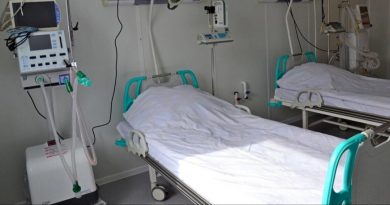Uzbekistan: Bloggers were denied a fair trial
On March 10, the City Court of Appeal in Tashkent considered the case of blogger Fozilkhodzhi Arifkhodzhaev and upheld the verdict. This was announced by human rights activist Abdurahmon Tashanov.
On January 26, the criminal court of Almazar district of Tashkent passed a sentence against a religious blogger and found him guilty under paragraph “d” of part 3 of article 244-1 of the Criminal Code (“Production, storage, distribution or demonstration of materials containing a threat to public safety and public order using the media or telecommunications networks, as well as the Internet”) and sentenced him to 7 years and 6 months in prison.
The human rights activist noted that despite the decision of the Plenum of the Supreme Court to allow the participation of members of the public in order to ensure the transparency of the courts, the City Court of Tashkent didn’t allow human rights defenders to come to trial. This casts doubt on the fairness of the trial court.
On June 26, 2021, Arifkhodzhaev called blogger Abror Abduazimov (online – Abror Mukhtor Ali) a hypocrite in a mosque. Then he received 15 days of administrative arrest for petty hooliganism. After the expiration of the term, he wasn’t released, as the Central Internal Affairs Directorate of the capital announced that they had received information about the storage of materials of a ‘dubious religious nature that he showed to other people’ on his smartphone.
Abror Abduazimov is an employee of the Center for Islamic Civilization under the Cabinet of Ministers. Now the institution has received a different status, becoming a Scientific and Educational Center with the task of promoting the idea of “Third Renaissance – New Uzbekistan”.
The accusatory testimony of the blogger-official also played a role in the case of blogger Miraziz Bazarov. As ACCA wrote earlier, on January 21 of this year, the court found him guilty under clause “d” of part 3 of article 139 of the Criminal Code of Uzbekistan (“Defamation for selfish or other base motives”), as a result: restriction of freedom for a period of three years, starting from the moment of his house arrest – from April 29, 2021.
On March 4, the City Criminal Court of Appeal in Tashkent upheld Bazarov’s sentence for insulting pro-government bloggers and unnamed individuals. During the debate of the parties, lawyer Mayorov once again pointed out the illegality of the verdict and the senselessness of the charges. He asked to cancel the decision of the Mirabad District Court of the capital and discharge his client. The prosecutor didn’t give any arguments, but made only one sentence: the prosecution fully proved Bazarov’s guilt.
The ACCA publication reported how on February 16 this year, the Samarkand Regional Court for Criminal Cases confirmed the legality of the punishment for journalist Anastasia Pavlenko. On January 18, the City Court recognized her as a slanderer and fined her $530. She suffered for her sincere desire in her materials to preserve from demolition the house of the founder of easel painting in Uzbekistan, Pavel Benkov, a cultural heritage of the country.
The government’s oversight of the media and blogosphere continues unabated. Journalists and bloggers who ‘wrongly cover’ the war in Ukraine are summoned for interrogation by the special services.
On March 4, the Center for Mass Communications under the Information and Mass Communications Agency of Uzbekistan demanded that independent journalist Marina Kozlova delete within 24 hours an interview with Mykola Doroshenko, Ukraine’s Ambassador to Uzbekistan, on Yep.uz website. The Agency found ‘photos and videos that contradict the requirements of current legislation’ and demanded that the publication be removed. The notice contains neither a date nor the signature of the responsible official, but a list of four laws of the country is given, for violation of which Marina can be subjected to criminal prosecution. The journalist refused to delete the interview and is ready to sue.




